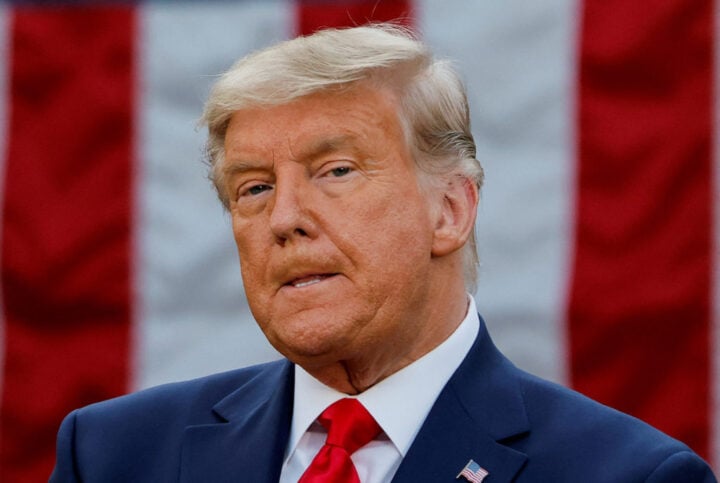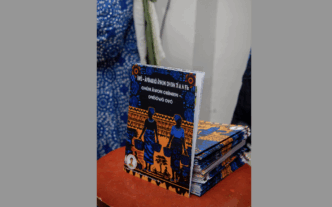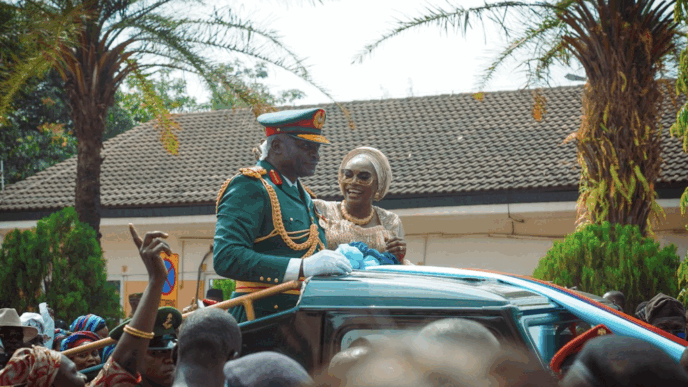Donald Trump
President Trump is right to draw attention to the plight of victims of Islamist terror in Nigeria, but a unilateral invasion of the country will be counterproductive.
Has there ever been a more eventful weekend in U.S.-Nigeria diplomatic and security relations?
On Friday, President Trump had set the tone for what was to come with the disclosure on his Truth Social account that he had designated Nigeria a Country of Particular Concern (CPC). The president made it clear that he had acted in order to stop the continued slaughter of Nigerian Christians whom, as he sees it, face “an existential threat” in the country. Considering recent developments, particularly persistent advocacy by Senator Ted Cruz to have the CPC tag slapped on Nigeria, the announcement by President Trump was just a question of time.
However, if President Trump had intended to draw out the Nigerian government, the response by the Nigerian Ministry of Foreign Affairs could not have been more measured. Rather than contest every inch of argumentative ground with President Trump, the Ministry merely restated the Nigerian authorities’ “resolve to tackle the violent extremism that is fueled by special interests…across the intersecting West African and Sahel regions” and the Federal Government’s determination to “continue to defend all citizens, irrespective of race (sic), creed, or religion.” Instructively, the Foreign Affairs Ministry was careful to keep the door open to negotiation with Washington, whom it referred to as “a close ally.”
Advertisement
The relative restraint of the authorities in Abuja made President Trump’s next move all the more surprising. On Saturday, in another Truth Social post, the president escalated the situation by threatening to “immediately stop all aid and assistance to Nigeria” and “go into that now disgraced country, ‘guns-a-blazing’, to completely wipe out the terrorists” if the Nigerian government “continues to allow the killing of Christians.” In his response, Nigerian President Bola Tinubu sought to reject “the characterization of Nigeria as religiously intolerant” because it “does not reflect our national reality, nor does it take into consideration the consistent and sincere efforts of the government to safeguard freedom of religion and beliefs (sic) for all Nigerians.” Just like the earlier statement by the Ministry of Foreign Affairs, President Tinubu also struck a pacifist tone by expressing his administration’s commitment to “working with the United States government and the international community to deepen understanding and cooperation on protection of communities of all faiths.”
While President Trump’s next move is anyone’s guess, it is important to keep in mind that he has always been solicitous about the welfare of Christians in Nigeria. During his first term, he famously put then-Nigerian President Muhammadu Buhari on the spot by pointedly asking him during a visit to Washington, “Why are you killing Christians in Nigeria?” In December 2020, citing “religion-based violence in Nigeria, particularly the killing and persecution of Christians,” the first Trump administration had designated Nigeria a CPC for the first time, only to have the decision reversed by the Biden administration almost a year later in November 2021. In addition, President Trump had sold twelve counterinsurgency aircraft worth almost $500 million to the Nigerian government “to help in its fight against Boko Haram jihadist insurgents.”
With all this in mind, and considering President Trump’s instruction to the Department of War to “prepare for possible action”; given Defense Secretary Pete Hegseth’s enthusiastic endorsement that “the killing of innocent Christians in Nigeria—and anywhere—must end immediately”; and finally, considering President Trump’s statement to reporters on Air Force One early on Sunday concerning the “possibility of U.S. boots on the ground or airstrikes in Nigeria”; there is a strong probability that President Trump will order U.S. military action in Nigeria in the coming weeks, the form and duration of which can hardly be predicted.
Advertisement
Predictable or not, a unilateral intervention against the wish of the Nigerian authorities would be precisely the wrong course of action for Washington to take. By trampling over a sovereign state whose authorities have continued to show a willingness to collaborate, President Trump will needlessly invigorate skeptics who have argued that his ostensible solicitude for the welfare of Nigerian Christians is more of an ego trip than a genuine wish to see Boko Haram defeated. Furthermore, such a move would deflect attention from Boko Haram and shift the focus to the ethics of intervention and the highhandedness of a superpower riding roughshod over a poor African country. Third, it would profoundly alter the military and political calculus in Nigeria, eroding the authority of the Tinubu government and opening the door to possible military intervention in the country. Finally, it would deepen ethnoregional division in Nigeria as various elite, professional, and interest groups are forced to stand with or against Presidents Trump and Tinubu, respectively.
Instead of ordering unilateral military action, President Trump should accept President Tinubu’s conciliatory gesture and explore all avenues of military and diplomatic cooperation with Nigeria. A concerted, joint military action between U.S. Marines and the Nigerian army has to be on the table at this point.
For too long, successive Nigerian administrations have treated the Boko Haram insurgency with levity, allowing the barbaric group to run rampant across the Northern and Middle Belt regions of the country. Across the broader Sahel, Boko Haram’s ideological affiliates, including al-Qaeda, al-Shabaab, ISIS, Lakurawa, Mahmuda, Islamic State West Africa Province, and Jama’at Nusrat al-Islam wal-Muslimin have mounted a reign of terror. The Africa Center for Strategic Studies estimates that, in the past decade, fatalities linked to the operations of these groups have surpassed 150,000. Last week, with al-Qaeda apparently on the verge of overrunning Bamako, the Malian capital, the United States warned its citizens to leave the country immediately.
President Trump is right to insist on holding the Nigerian authorities to account for allowing the crisis to get out of hand, and for condoning blasphemy violence against ordinary citizens, but the administration should not lose sight of the fact that Islamist militancy of which Boko Haram is the Nigerian spearhead, and not the Nigerian people, is the enemy. Collaboration at the highest levels, rather than a military invasion undertaken without the imprimatur of the Nigerian authorities, is what is needed to take the fight to the group and eliminate it.
Advertisement
The American security goal should be to have a Nigeria (and by implication, a Sahel region) strong enough to repel and extirpate Boko Haram and its ideological cousins. A unilateral invasion that creates chaos and disunity in Africa’s most populous country is the wrong way to go about it.
Ryan Brown contributed to the research for this article.
Views expressed by contributors are strictly personal and not of TheCable.










